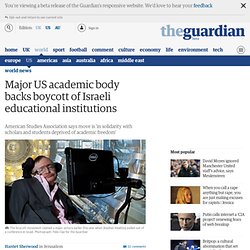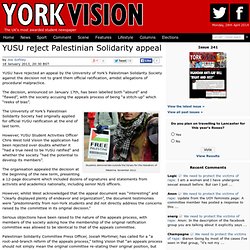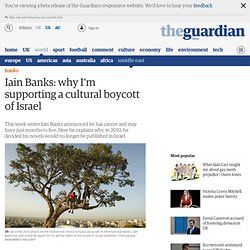

The rise of Boycott, Divestment and Sanctions. The Boycott, Divestment and Sanctions (BDS) movement was founded by a broad coalition of Palestinian civil society groups in 2005.

The intervening years have seen BDS develop and gain force in tandem with the emergence of two phenomena that will define the Palestinian fight for freedom for the foreseeable future. First, the resolution of the conflict will be mediated through grassroots activism rather than through the diplomatic or governmental efforts of political elites. Second, the Palestinian struggle has been internationalised.
In other words, the quest for a resolution to the problem of Zionism is no longer the exclusive preserve of the Americans and their client regimes in the Arab world. Taken together, these structural developments, which both contribute to and are derived from BDS, represent the best chance for delivering freedom in Palestine. Boycott, Divestment and Sanctions Today, the BDS movement is larger and more vibrant than it's ever been. Israel's response. The Sound of Silencing in American Academe. Major US academic body backs boycott of Israeli educational institutions.
A prestigious US academic body has joined a growing movement to boycott Israel in protest at its treatment of Palestinians, in a move both welcomed and condemned in a bitterly divisive international arena.

The American Studies Association (ASA), which has more than 5,000 members, is the most significant US academic organisation to back a boycott of Israeli educational institutions following a two-thirds majority vote. Around a quarter of members took part in the ballot. The ASA resolution was "in solidarity with scholars and students deprived of their academic freedom", the organisation said in a statement. It cited "Israel's violation of international law and UN resolutions; the documented impact of the Israeli occupation on Palestinian scholars and students; [and] the extent to which Israeli institutions of higher education are a party to state policies that violate human rights. " The ASA move, which is not binding on its members, drew angry responses from Israeli ministers. Abed Takriti "Peace and Pacification" part 2. “I don’t suppor… YUSU reject Palestinian Solidarity appeal. YUSU have rejected an appeal by the University of York’s Palestinian Solidarity Society against the decision not to grant them official ratification, amidst allegations of procedural malpractice.

The decision, announced on January 17th, has been labelled both “absurd” and “flawed”, with the society accusing the appeals process of being “a stitch-up” which “reeks of bias”. Students demonstrate outside the library for the liberation of Palestine. November 2012. The University of York’s Palestinian Solidarity Society had originally applied for official YUSU ratification at the end of last term. However, YUSU Student Activities Officer Chris West told Vision the application had been rejected over doubts whether it “had a true need to be YUSU ratified” and whether the society “had the potential to develop its members”. “We have already launched a petition and will be protesting until the decision is overturned and the appeals process changed,” he said.
Chomsky backs tactics opposing Israeli policies. Analysis I WAS surprised to read a letter to the editor of The Australian claiming that I regard the Boycott, Divestment and Sanctions movement’s tactics targeting Israel as “pure anti-Semitism, aimed at the destruction of Israel” and that I said BDS efforts are “inimical to the interests of and lacking any genuine support from the Palestinian people” (Letters, 14/12). These tactics have enormous support among Palestinians, and the charge of anti-Semitism should be dismissed with disdain.
When Human Rights Watch “calls on the US and European Union member states and on businesses with operations in settlement areas to avoid supporting Israeli settlement policies that are inherently discriminatory and that violate international law”, it is advocating BDS tactics, rightly, and there is no hint of anti-Semitism. I have personally been involved in such forms of opposition to the Israeli occupation for years, long before there was a BDS movement. Iain Banks: why I'm supporting a cultural boycott of Israel. I support the Boycott, Divestment and Sanctions (BDS) campaign because, especially in our instantly connected world, an injustice committed against one, or against one group of people, is an injustice against all, against every one of us; a collective injury.

My particular reason for participating in the cultural boycott of Israel is that, first of all, I can; I'm a writer, a novelist, and I produce works that are, as a rule, presented to the international market. This gives me a small extra degree of power over that which I possess as a (UK) citizen and a consumer. Secondly, where possible when trying to make a point, one ought to be precise, and hit where it hurts. The sports boycott of South Africa when it was still run by the racist apartheid regime helped to bring the country to its senses because the ruling Afrikaaner minority put so much store in their sporting prowess.
Remi Kanazi - 'This poem will not end apartheid', London, 12.11.11.